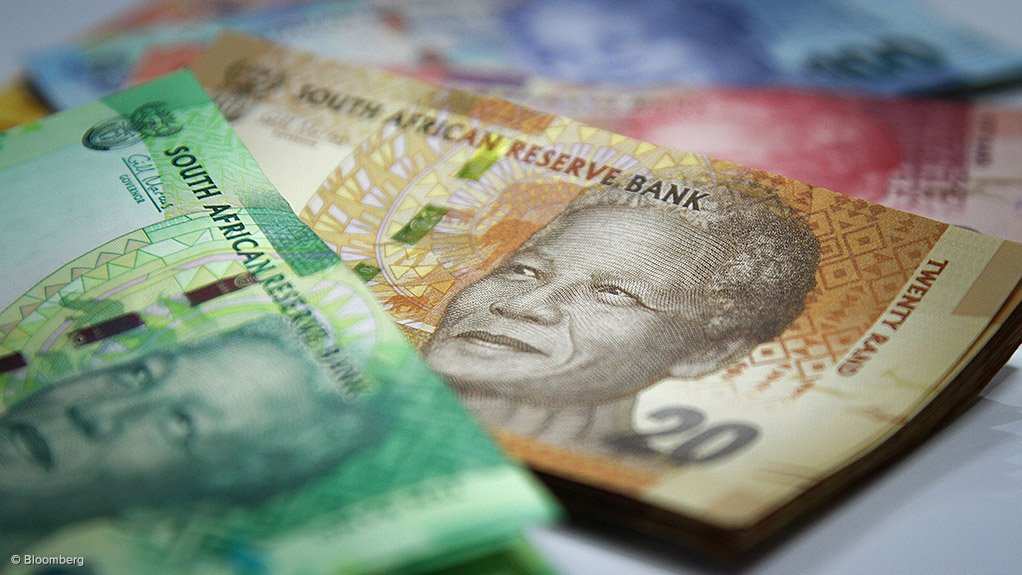Institute for Economic Justice (IEJ) executive director Dr Gilad Isaacs noted on Friday that the country’s debt trajectory is of concern, especially if there is no credible growth strategy.
Isaacs was speaking during the IEJ webinar on the fiscal crisis, where he said the critical issue facing South Africa’s borrowing was the cost of debt – that is high interest rates – combined with a lack of effective growth strategy.
The IEJ estimated an updated revenue shortfall of R52.4-billion if no changes are made for the rest of the 2023/24 period. This is within historical norms. In 2017/18, 2018/19, and 2019/20 revenue shortfalls ranged from R58.2-billion to R70.1-billion.
Based on current trends, an expenditure overrun of between R67.9-billion and R105.8-billion is projected for 2023/24.
The IEJ highlighted that the largest share of this was R37.5-billion from the “predictable but unbudgeted” public sector wage bill increase. The overspend was a little higher than other years and the revenue shortfall and expenditure overspend compounds one another, said Isaacs.
IEJ research shows that South Africa’s current debt levels should not be characterised as being at "crisis" proportions.
The research suggests that the country’s debt-to-gross domestic product (GDP) ratio, at 71.4% in 2022/23, is in line with the emerging market and middle-income country average of 69% in 2022/23.
“While the acute budget mismatches can be relatively easily managed, repeated revenue shortfalls and expenditure overruns would be unsustainable over the medium term. The only credible strategy to tackle debt levels is through economic expansion,” he said.
He highlighted that the rushed and indiscriminate budget cuts currently being pushed through by National Treasury would cause economic contraction.
SOLVING IMMEDIATE BUDGET MISMATCH
The IEJ’s research suggests that the budget mismatches and further pressures on the horizon provide an opportunity for the fundamental reform of South Africa’s fiscal framework to centre the role and potential of the budget in advancing developmental priorities.
“Use some of the R459-billion owed to the South African government in the Reserve Bank’s somewhat obscure Gold and Foreign Exchange Contingency Reserve Account. This is in keeping with other major central banks remitting profits to their respective Treasuries,” he said.
He highlighted that short-term borrowing must be increased, explaining that even if the entire mismatch was closed in this way it would increase the gross debt-to-GDP ratio by about two percentage points only.
“In this scenario the debt trajectory would still be considerably lower than Treasury’s own debt-to-GDP forecasts from 2019, 2020 and 2021.”
Isaacs explained that, in the short term, revenue can be raised through the removal of tax breaks for high-income earners, the removal of selected tax breaks for corporates and restoring the corporate income tax rate to 28%.
“Removing tax breaks for those earning above R750 000 (around 2.9% of the working population) would alone raise an estimated R83-billion.”
He added that exploring raising additional taxes through increased taxation on wealth and income from financial assets, tackling illicit financial flows, and capturing rents and windfalls were other options.
He noted that a general increase in the VAT rate would make the tax mix more regressive, fail to raise the sums needed, and disproportionately burden poor and low-income earners.
The only VAT increase that would be defensible would be the introduction of a higher VAT rate on luxuries, he said.
EMAIL THIS ARTICLE SAVE THIS ARTICLE ARTICLE ENQUIRY
To subscribe email subscriptions@creamermedia.co.za or click here
To advertise email advertising@creamermedia.co.za or click here











